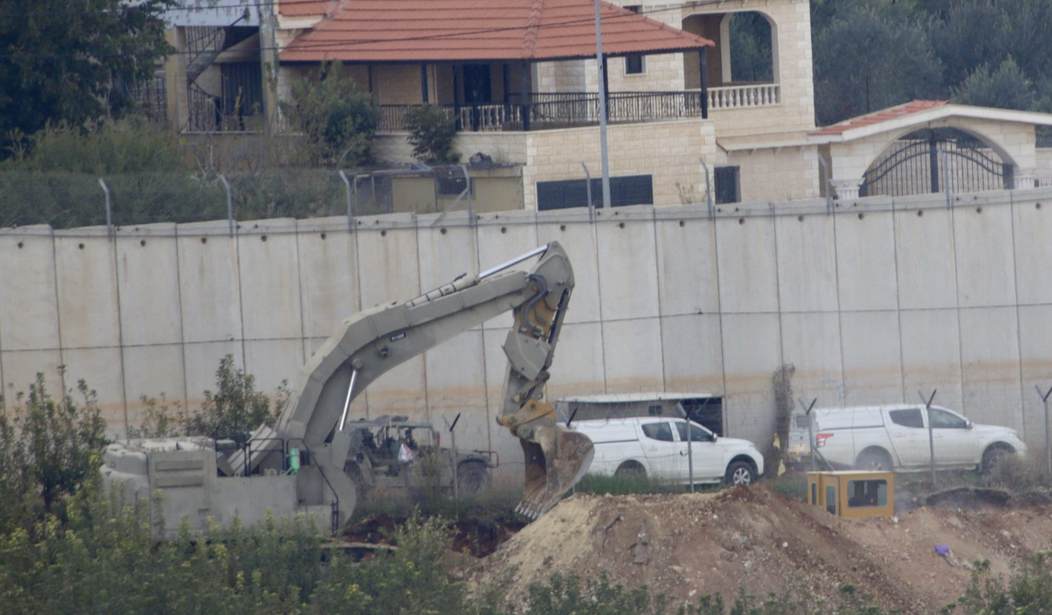Israel has launched a major operation to destroy tunnels that Hezbollah, with Iranian funding, has been building for years. The two tunnels unearthed so far began under Lebanese villages and snaked across the border into Israel.
An Israeli official said these tunnels were “large enough to be used by ‘entire battalions’ to enter Israeli territory in order to ‘carry out killing sprees and kidnappings and to capture Israeli towns and villages.’”
The grand aim of the tunnels was to conquer parts of the Galilee in the course of a future war with Israel. The Israeli authorities, it turns out, have known about the tunnels all along. Apparently none of them have been completed so far; it takes years of hard work and scads of Iranian funding to bore through the rocky ground along the Israel-Lebanon border. Now it looks as if it’s all gone to waste — another good reason to wait before taking action.
Still, the question arises as to why Israel decided to act just at this point. The best answer is that the situation was getting critical. Not only were the tunnels just months from completion, but the situation further north, in Beirut and its environs, has been getting worse and worse.
Al-Monitor reports that on November 29 one of Iran’s civilian Boeing airliners, “operated by a company with ties to the Iranian Revolutionary Guard Corps,” landed in Beirut. Its cargo was believed to include “GPS systems that were supposed to be installed on Hezbollah missiles and rockets.”
Hezbollah is believed to have over 100,000 missiles for use against Israel. Turning them into precision-guided missiles would allow Hezbollah to turn Israel’s air force sorties, military bases, and civilian infrastructure into a shooting gallery.
For years, Iran has been ferrying — or trying to ferry — strategic weaponry to Hezbollah via Syria. Al-Monitor claims that, after hundreds of Israeli attacks on such weaponry within Syria, Vladimir Putin has had enough of Syria being an Israeli-Iranian battleground. “[T]hat is why Iran made the decision to skip Syria entirely and use direct flights to Lebanon instead.”
The problem for Israel is that while attacking sites in Syria is one thing, shooting down a Boeing jet would be quite another, certain to get Israel into hot water with everyone. The only option left for Israel is to attack the supplies within Lebanon itself after delivery.
And that — at least according to some Israeli analysts — is where the tunnels come in.
Before Israel can contemplate a serious offensive against the precision-missile industry that Iran is helping Hezbollah build in Lebanon, the tunnels must be neutralized. Israel would not want to launch an operation while terrorists were running rampant in the Galilee.
Another factor that could point to a substantial Israeli operation is that Hezbollah — despite the constant military buildup — is currently not in good shape to fight Israel. Most of its 40,000 or so fighters are still slugging it out in Syria, and thousands of them have been killed or wounded there. “Today,” reports Israel Hayom, “less than 15% of the organization’s fighting force is ready and available for a military conflict with Israel.”
Still, whether the tunnel-destroying endeavor is a one-off operation or a precursor to something bigger is something only time will tell. Meanwhile Israel, as usual, has taken the fight to the diplomatic front, trying to show the world what it’s up against across its northern border. So far even UNIFIL — the UN “peacekeeping force” in southern Lebanon that is little more than a bad joke — has admitted that one of the tunnels is a “serious concern.” But Israel’s “serious concerns” extend past the tunnels to Beirut and beyond.









Join the conversation as a VIP Member